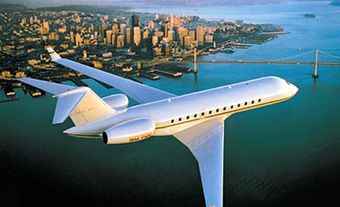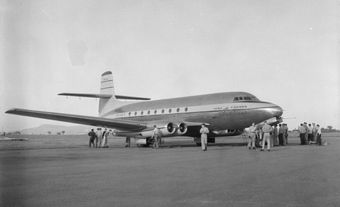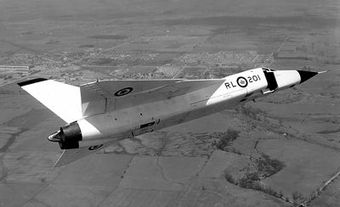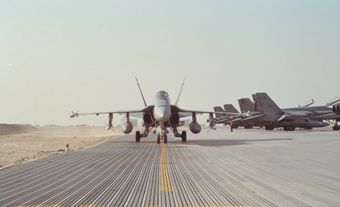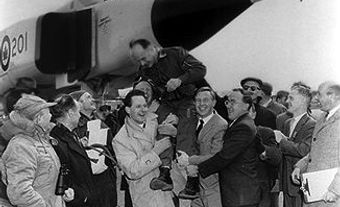The CF-100 Canuck, manufactured by A.V. Roe Canada (Avro), was the first jet fighter designed and built entirely in Canada. It flew in front-line air defence from 1953 until the early 1960s.

During the Cold War, Canada and the United States feared that Soviet Union bombers would attack North America via the Arctic. The CF-100 was designed to intercept these enemy aircraft. After four years of development, it first flew in January 1950; Avro went on to build 692 Canucks. The jet entered service in the Royal Canadian Air Force in April 1953 and flew in NORAD and NATO squadrons until the early 1960s. With the cancellation of its intended successor, the Avro Arrow, the Canuck was replaced by the McDonnell CF-101 Voodoo. The Canuck served in training and reconnaissance, away from the front lines (most notably by NORAD), until 1981.
It was not as fast as contemporary fighters, but its good climb rate, excellent radar, twin-engined reliability and all-weather capability made it suitable for defence in the extreme conditions of the Canadian North and in the cloud of West Germany (where Canadians served during the Cold War). Fifty-three were sold to Belgium.
Two are preserved in the Canadian Aviation and Space Museum in Ottawa, one in the Hangar Flight Museum in Calgary and others in parks and bases across Canada. Although Canuck was its official name, its nicknames included the “Clunk” and the “Lead Sled.”
Did you know?
Although it was not designed for supersonic speeds, the CF-100 Canuck broke the sound barrier (Mach 1) in a dive performed by Avro test pilot Janusz Zurakowski on 18 December 1952.
See also Military Aviation.

 Share on Facebook
Share on Facebook Share on X
Share on X Share by Email
Share by Email Share on Google Classroom
Share on Google Classroom
